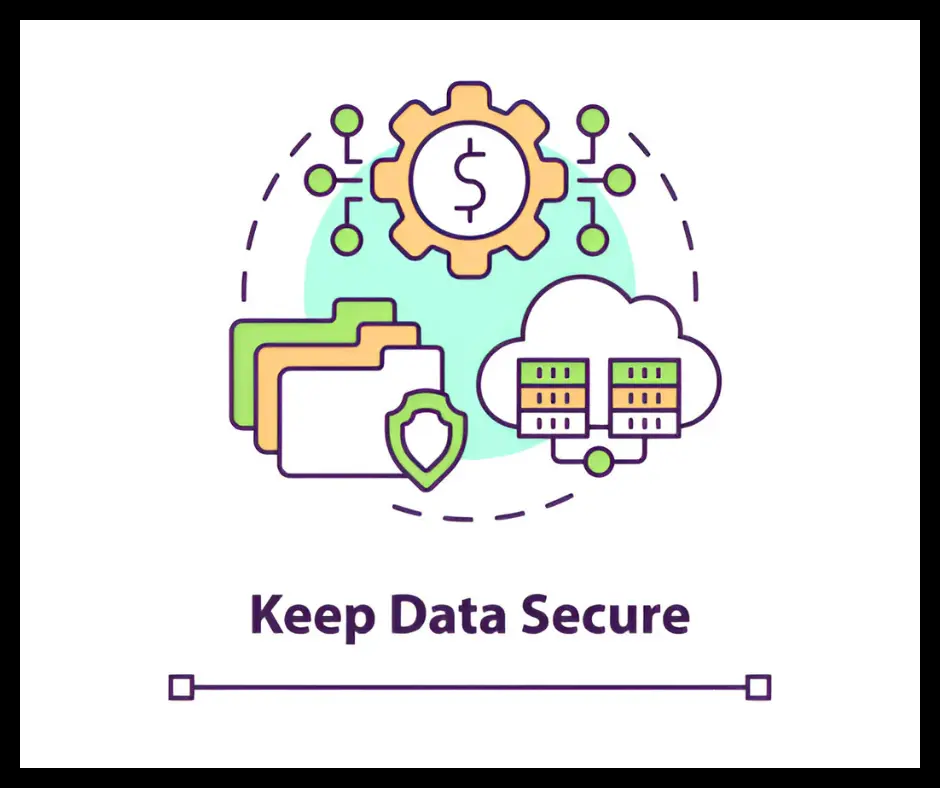From small-scale agencies to large organizations, many businesses struggle to keep their finances organized. The traditional bookkeeping method is not only time-consuming but is also prone to human errors, and not to mention that the smallest error can easily turn a business upside down. However, there really is no need to do the process by hand. In our modern and ever-evolving world, cloud bookkeeping has proven to be an effective method to simplify the entire process. In this article, we will discuss the benefits of a cloud based bookkeeping system and how it can assist in streamlining financial tasks.
Also Read: The Evolving Landscape of Cloud Accounting Security
Do note that a robust knowledge of cloud computing is required to fully experience the benefits of bookkeeping via the cloud. In case you do not have the technical understanding, you can always connect with an expert at +1(800) 217-0394 for personalized guidance.What Is Cloud Based Bookkeeping?
Cloud bookkeeping is exactly what it sounds like; doing bookkeeping tasks via the cloud. By adopting this method, you will be able to keep your business accounts, files, and folders in the virtual environment of the cloud to access it anytime. Moreover, the cloud will encrypt all the documents to keep them safe from data threats. With the whole system running on cloud servers, you will be able to remotely access your finances from anywhere at any time.
What Are The Benefits of Cloud Bookkeeping Software?
Instead of running on a local server and being segmented into a system, cloud runs the software directly on the internet. The method unlocks a wide array of benefits, including:
Benefit 1. Remote Access
In cloud bookkeeping, you can easily access your files and documents as the data will be stored in cloud servers instead of a physical hardware. Moreover, changes in these documents can also be made without requiring a connection to the primary system. This can help to improve productivity as well as assist in meeting and managing tight deadlines.
Benefit 2. Real-Time Information
Cloud based bookkeeping system allows to send invoices to clients without requiring to integrate any additional software in the cloud. Also, these invoices can be tracked for payments. With all this information, you will be able to check whether there are any past due payments or not with no more than just a few clicks.
Benefit 3. Data Security

When dealing with financial data, security is among the major concerns, especially when all the data is stored in virtual servers. However, the servers of cloud are integrated with robust security protocols, such as data encryption, multi-factor authentication, and intrusion detection to keep the data stored in the bookkeeping software safe and secure.
Benefit 4. Team Collaboration
With cloud bookkeeping, users can remotely access the data as it will be stored in a centralized and accessible location. Multi-user mode can help to boost productivity all the while reducing the chances of miscommunications and human-made error
Benefit 5. Streamline Tasks
Cloud-based bookkeeping and accounting services allow for automating tasks, such as calculating taxes and attaching invoices. Through this, it helps streamline tasks. As a result of automating routine-based tasks, you will be able to promote the productivity of your business, all the while simplifying finances.
Also Read : Why Should I Consider Desktop as a Service as My Cloud Assistant?
The Difference Between Traditional vs Cloud Bookkeeping
Traditional bookkeeping refers to manually recording and organizing financial documents by installing software on a system. Bookkeeping via cloud, on the other hand, means using a software that stores the data in the cloud, making it accessible with an internet connection. Both methods have major differences, and we have listed the key distinctions below.
Difference 1. Accessibility
Traditional: Only a single user can access it as the data is installed on a local system or a server. Although this limits the user access, the software can be accessed through a remote desktop connection.
Cloud: As the data is stored in cloud server, users can access it from a remote location, provided they have a stable internet connection
Difference 2. Data Storage
Traditional: As the software is based on a local system, the data is stored in the system’s drives, making it prone to data loss.
Cloud: In cloud bookkeeping, the data is stored on multiple cloud servers. This reduces the risk of data loss even in the case of hardware failure.
Difference 3. Maintenance
Traditional: Maintenance is not only time-consuming in traditional bookkeeping, but it is also expensive and complicated. This is because you will be required to manually maintain and update the software yourself.
Cloud: As for cloud bookkeeping, both updates and maintenance are handled by the provider. This eliminated the need to manually maintain and update the software.
Difference 4. Automation
Traditional: In this method, automation is highly limited, and more manual entry is required. This can make the process time-consuming and even complicated.
Cloud: Cloud based bookkeeping system helps to automatically handle tasks, such as data entry, payroll processing, and creating and sending invoices. Therefore, saving time for strategic planning to grow your business.
Difference 5. Security
Traditional: This method is more vulnerable to cyberattacks and malware threats as the local password is the only standing line of defense for security.
Cloud: The environment of the cloud is backed by robust security protocols. These protocols ensure to keep your data safe and secure by preventing cyberattacks as well as malware threats.
Although both methods have their own set of differences, cloud bookkeeping proves to be much more reliable and effective to simplify finances. Even though traditional bookkeeping does have a few benefits, it is much more prone to threats. This is one of the major reasons why companies have shifted their bookkeeping processes to the cloud.
Also Read : Cloud Storage For Startups: Which One Should You Choose?
How To Find The Best Bookkeeping Cloud Software For Your Business?
In order to reap the benefits of cloud bookkeeping, you will first need to find a software that suits best to your business needs and long-term goals. You can consider the factors that we have listed below to find the perfect software for your business.
1. Identify Your Needs
While the idea of choosing a software with the highest reviews is tempting, it is not the best way to start. Do note that there is literally an array of cloud bookkeeping software, and each software serves different needs. For instance, if you are facing challenges such as manual data entry and human errors, then look for software that allows you to automate these tasks.
2. Reliability
Once you have identified your needs and concerns, you will need to see whether the provider is offering good reliability with the software or not. This reliability will ensure that you are able to access the software without suffering from downtime.
3. Security
Lastly, you will need to check the security protocols of the software provider. Even though the cloud offers excellent security features, there can be a few holes in it, depending on how the services are used. To fill these holes, make sure that the security protocols of the software are robust and allow automatic backups for files and folders.
To Conclude
Cloud bookkeeping is the future of finances, as it allows to automate and simplify tasks without much configuration. By adopting cloud solutions, you will be able to improve the productivity of all your accounting and bookkeeping operations without requiring you to break the bank. Moreover, the safety and security measures will also ensure that your crucial financial data is protected at all times.
If you need assistance with setting up the software, automating tasks, or finding a provider or have any other questions related to cloud bookkeeping, then we highly recommend that you reach out to an expert at +1(800) 217-0394 for quick and reliable solutions.
Frequently Asked Questions (FAQ)
What is cloud pricing for bookkeepers?
The pricing models for cloud bookkeepers are typically subscription-based. This means that they can choose whether they want to renew the plan on a monthly or annual basis.
What does cloud bookkeeping mean?
This refers to managing finances through an online bookkeeping software. The software runs on a cloud environment and allows for easy remote access.
What are the disadvantages of cloud based bookkeeping?
As the whole process runs on the cloud, a stable internet connection is required to ensure smooth performance. In case the network connectivity is poor, then you will see downtime, or worse, you might not be able to access the software at all.

Brown Lopez is a Cloud Engineer and technical writer based in Austin, USA, who enjoys turning complex cloud ideas into clear, simple insights. With solid experience in cloud architecture and real-world projects, he loves creating practical content that helps professionals understand, build, and improve their cloud solutions with confidence.